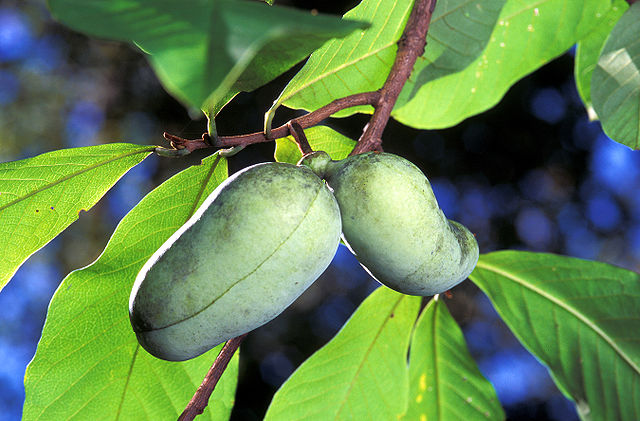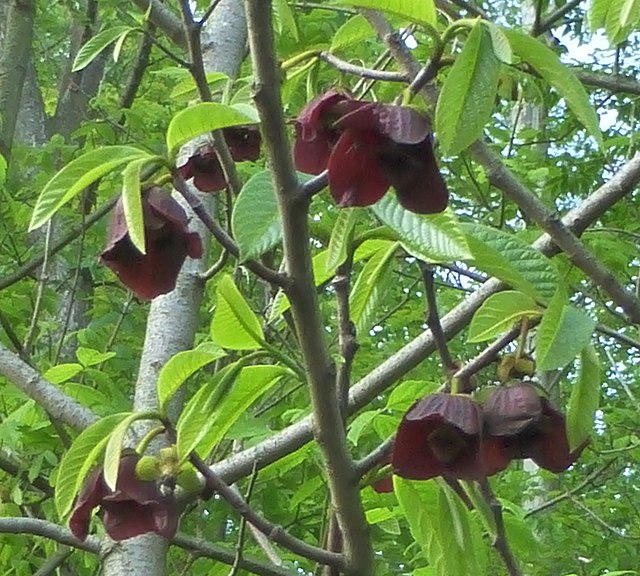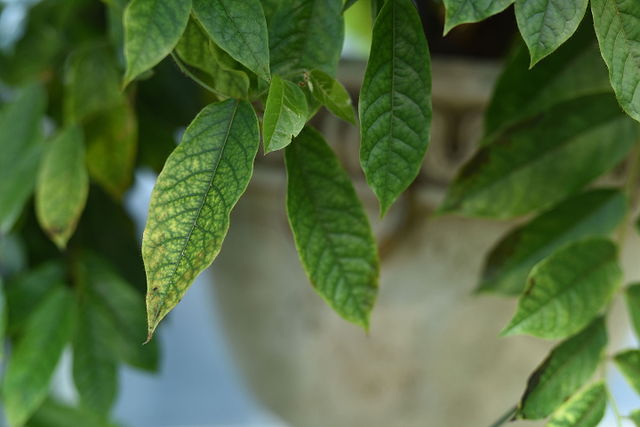Asimina is a genus of small trees or shrubs described as a genus in 1763. Asimina is the only temperate genus in the tropical and subtropical flowering plant family Annonaceae. Asimina have large, simple leaves and large fruit. It is native to eastern North America and collectively referred to as pawpaw. The genus includes the widespread common pawpaw Asimina triloba, which bears the largest edible fruit indigenous to the United States. Pawpaws are native to 26 states of the U.S. and to Ontario in Canada. The common pawpaw is a patch-forming (clonal) understory tree found in well-drained, deep, fertile bottomland and hilly upland habitat. Pawpaws are in the same plant family (Annonaceae) as the custard apple, cherimoya, sweetsop, soursop, and ylang-ylang; the genus is the only member of that family not confined to the tropics.
Asimina
Flower of Asimina reticulata
Flower of A. triloba
Asimina triloba is often called "prairie banana" because of its banana-like, creamy texture and flavor.
The Annonaceae are a family of flowering plants consisting of trees, shrubs, or rarely lianas commonly known as the custard apple family or soursop family. With 108 accepted genera and about 2400 known species, it is the largest family in the Magnoliales. Several genera produce edible fruit, most notably Annona, Anonidium, Asimina, Rollinia, and Uvaria. Its type genus is Annona. The family is concentrated in the tropics, with few species found in temperate regions. About 900 species are Neotropical, 450 are Afrotropical, and the remaining are Indomalayan.
Annonaceae
Uvaria ovata
Asimina triloba fruit
Ylang-ylang (Cananga odorata) flowers.







